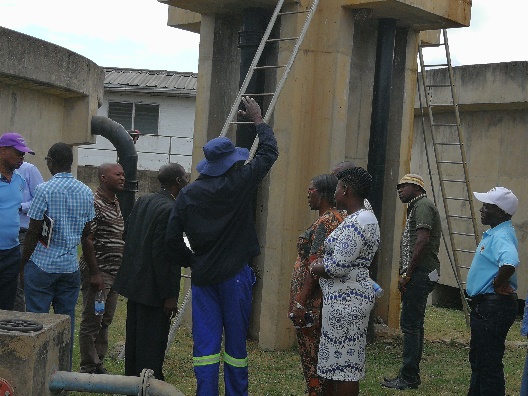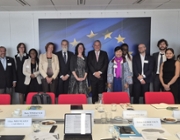Zimbabwe: benchmarking service delivery

05 July 2018
CLGF, in partnership with the Urban Councils Association of Zimbabwe (UCAZ) and the Ministry of Local Government, Public Works and National Housing, has been supporting the successful 2018 Service Level Benchmarking (SLB) in all 32 urban local authorities in Zimbabwe.
Essential tool for improvement
Over the last five years, and with support from the World Bank, SLB has been embraced by all urban local authorities as an essential tool to improve service delivery. Urban local authorities are using SLB as a scientific and objective tool to measure their individual performance in terms of providing clean water, managing waste water, managing solid waste, roads and infrastructure and corporate governance. Measured against set standards, and peer reviewed by other local authorities of the same status, this allows the councils to identify performance challenges and to design and implement sustainable, local authority driven, performance improvement interventions. Capacity building interventions will be extended to the elected and executive leaders of councils and will include equipping authorities with the appropriate skills and knowledge to effectively deliver.
Recommended actions
Through SLB, urban local authorities hold peer review sessions for each other every year to determine the level of service provision in the critical areas. These reviews enable authorities to determine their current service provision status, achievements and challenges and to recommend actions to improve delivery of these basic municipal services.
The 2018 SLB process took around three months to complete and received technical support from the Ministry of Environment, Water and Climate (MEWC) and the Zimbabwe National Water Authority (ZINWA), who are responsible for water provision in some local authorities and environmental management regulation. The process also attracted increased attention from other development partners, civil society organisations and residents of urban local authorities who keenly participated.
A consolidated peer review report and performance improvement plan are to follow. Generic challenges experienced include: obsolete water and sewer treatment equipment, limited ability to maintain treatment plants, unapproved (illegal) landfill sites, limited road maintenance, inability to meet statutory obligations, limited stakeholder engagement.
Rural roll-out
Owing to the success and impact of SLB in urban areas, the Association of Rural District Councils (ARDCZ) and the Ministry of Local Government will soon be rolling it out to Rural District Councils (RDCs). CLGF is partnering ARDCZ and Ministry of Local Government Public Works and National housing by supporting the institutionalisation of SLB within rural local authorities. CEOs from 60 RDCs, senior government officials, eight Provincial Administrators, and UNDP attended a workshop at the end of June in Bulawayo to deliberate on how to do this. During the workshop, participants identified critical service delivery themes to constitute benchmarking areas and peer review that included governance, integrated development planning, social services, natural resources management, infrastructure development and LED.
What follows next for rural local authorities is to review and design customised questionnaires; design the indicators; train the peer review team and lastly conduct the peer reviews. CLGF Project Manager Leopold Bhoroma said: “We are very pleased with the success of the SLB and progress made. Local authorities are really excited about this process because they can see tangible changes in their urban counterparts. CLGF looks forward to continuing our support in the form of technical expertise.”
Back to News





